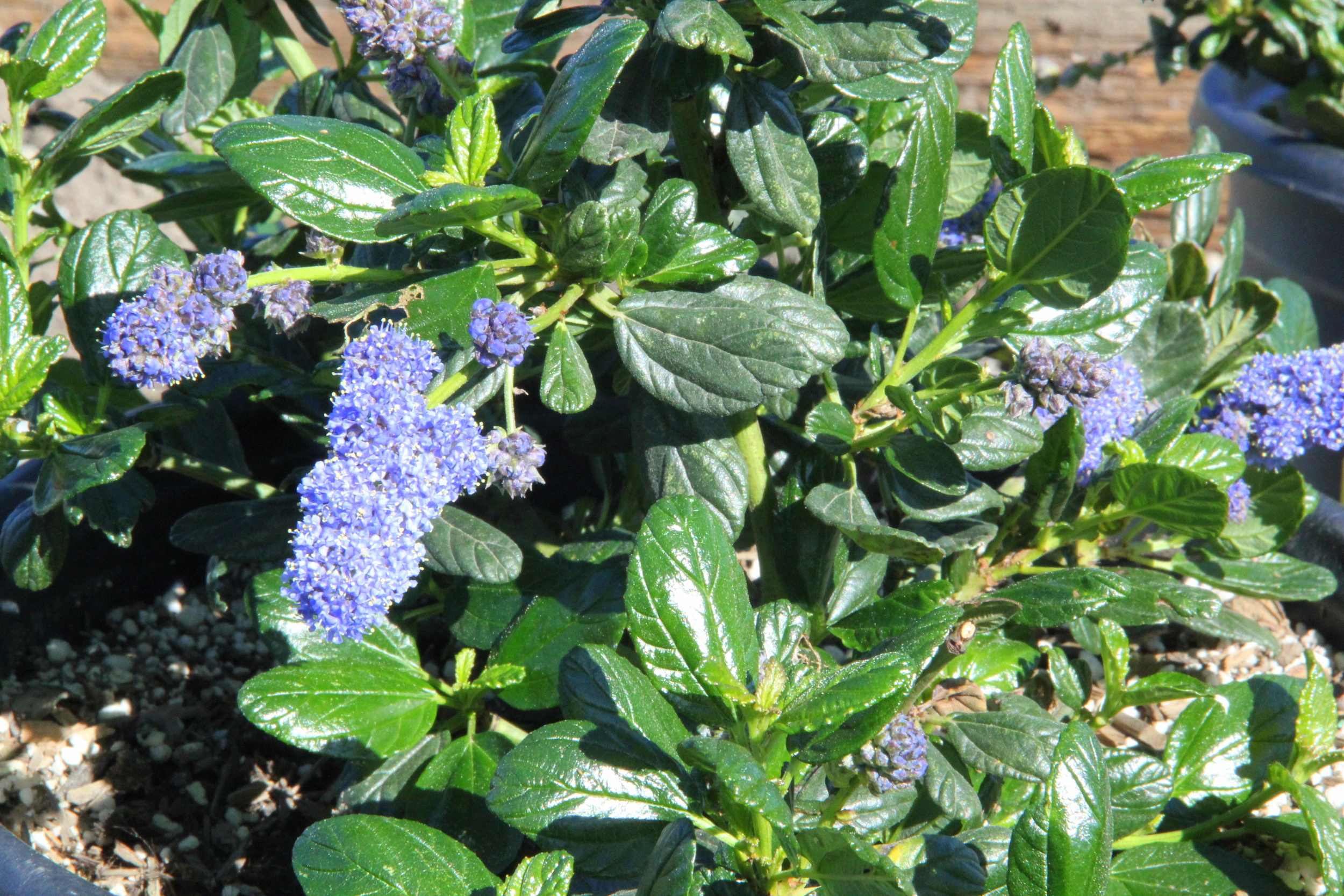Ceanothus griseus v. horizontalis 'Yankee Point'
Carmel Mountain Lilac
‘Yankee Point’ is a dense, uniform groundcover which requires little care. It grows slowly but steadily to 3 to 6 feet high and 8 to 10 feet wide and has glossy, dark green leaves and medium blue flower clusters 1 to 2 inches in width. It was originally found at Yankee Point in Monterey County. It will take heavier soil and more water than many other Ceanothus and is great on slopes.
Wildlife value: Ceanothus are hosts to a number of butterflies, including the Pipevine Swallowtail, Brown Elfin, Hedgerow Hairstreak, and Echo Blue. Their abundant flowers draw many insects. Ceanothus leaf litter supports plenty of invertebrates which, in turn, feed birds and lizards. The foliage provides excellent cover. The larger-leaved species are good forage for deer. Quail eat the small, hard seeds, and a number of mammals both large and small browse the twigs and foliage.
Additional notes about Ceanothus: Many Ceanothus are prone to disease in summer-wet soils, so little watering is recommended after the plants are established. Tip-pruning will keep plants compact. Small, wrinkled, or spiny-leaved forms are usually unattractive to deer. Ceanothus roots fix nitrogen in the soil. These plants will suffer if their roots are handled. Do not pry or prune the roots.

